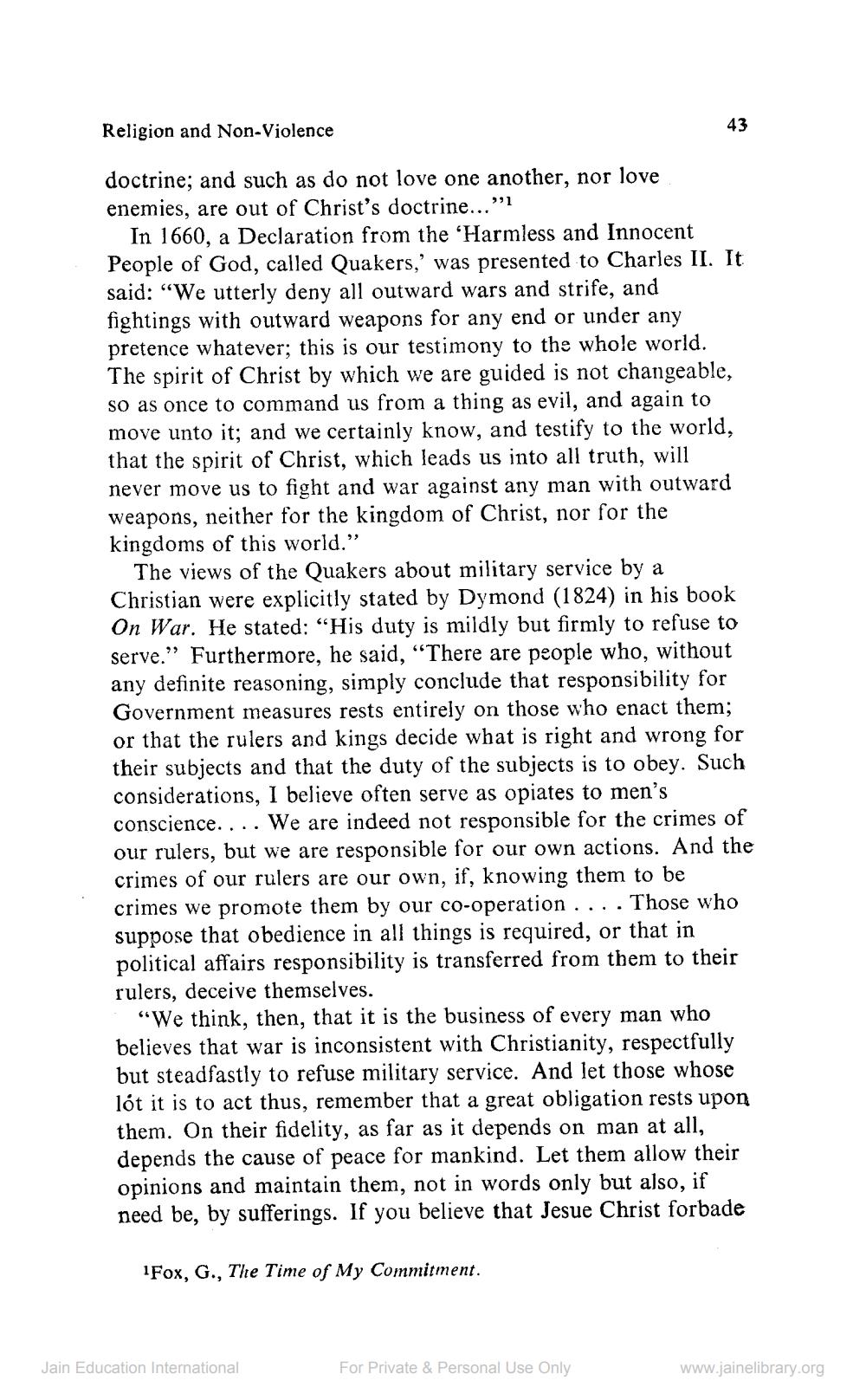________________
Religion and Non-Violence
doctrine; and such as do not love one another, nor love enemies, are out of Christ's doctrine...”1
In 1660, a Declaration from the ‘Harmless and Innocent People of God, called Quakers,' was presented to Charles II. It said: “We utterly deny all outward wars and strife, and fightings with outward weapons for any end or under any pretence whatever; this is our testimony to the whole world. The spirit of Christ by which we are guided is not changeable, so as once to command us from a thing as evil, and again to move unto it; and we certainly know, and testify to the world, that the spirit of Christ, which leads us into all truth, will never move us to fight and war against any man with outward weapons, neither for the kingdom of Christ, nor for the kingdoms of this world.”
The views of the Quakers about military service by a Christian were explicitly stated by Dymond (1824) in his book On War. He stated: “His duty is mildly but firmly to refuse to serve.” Furthermore, he said, “There are people who, without any definite reasoning, simply conclude that responsibility for Government measures rests entirely on those who enact them; or that the rulers and kings decide what is right and wrong for their subjects and that the duty of the subjects is to obey. Such considerations, I believe often serve as opiates to men's conscience. ... We are indeed not responsible for the crimes of our rulers, but we are responsible for our own actions. And the crimes of our rulers are our own, if, knowing them to be crimes we promote them by our co-operation .... Those who suppose that obedience in all things is required, or that in political affairs responsibility is transferred from them to their rulers, deceive themselves.
“We think, then, that it is the business of every man who believes that war is inconsistent with Christianity, respectfully but steadfastly to refuse military service. And let those whose lót it is to act thus, remember that a great obligation rests upon them. On their fidelity, as far as it depends on man at all, depends the cause of peace for mankind. Let them allow their opinions and maintain them, not in words only but also, if need be, by sufferings. If you believe that Jesue Christ forbade
Fox, G., The Time of My Commitment.
Jain Education International
For Private & Personal Use Only
www.jainelibrary.org




